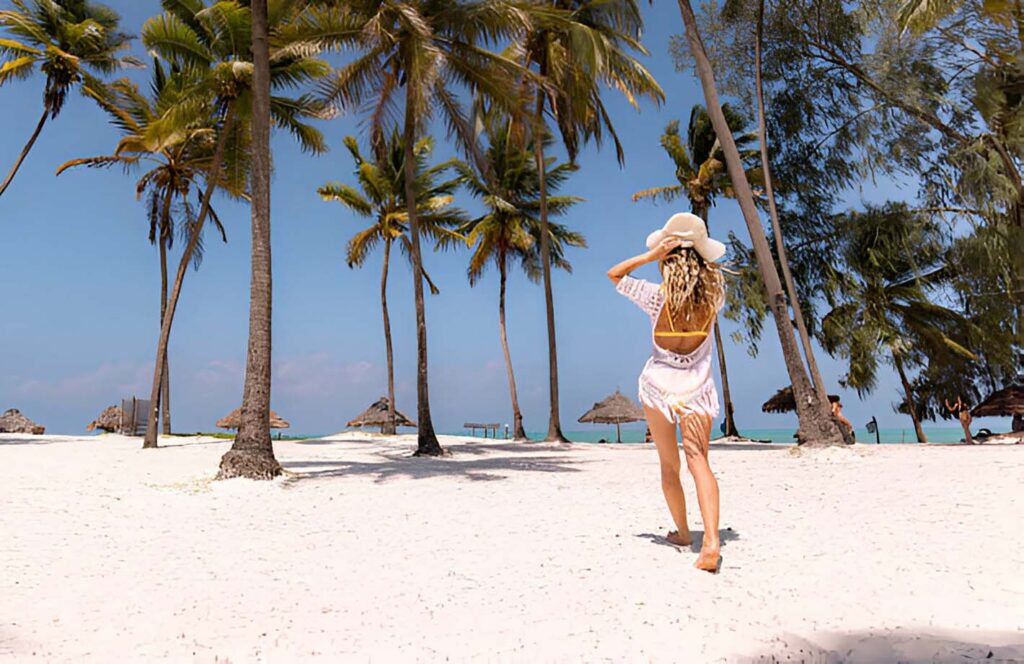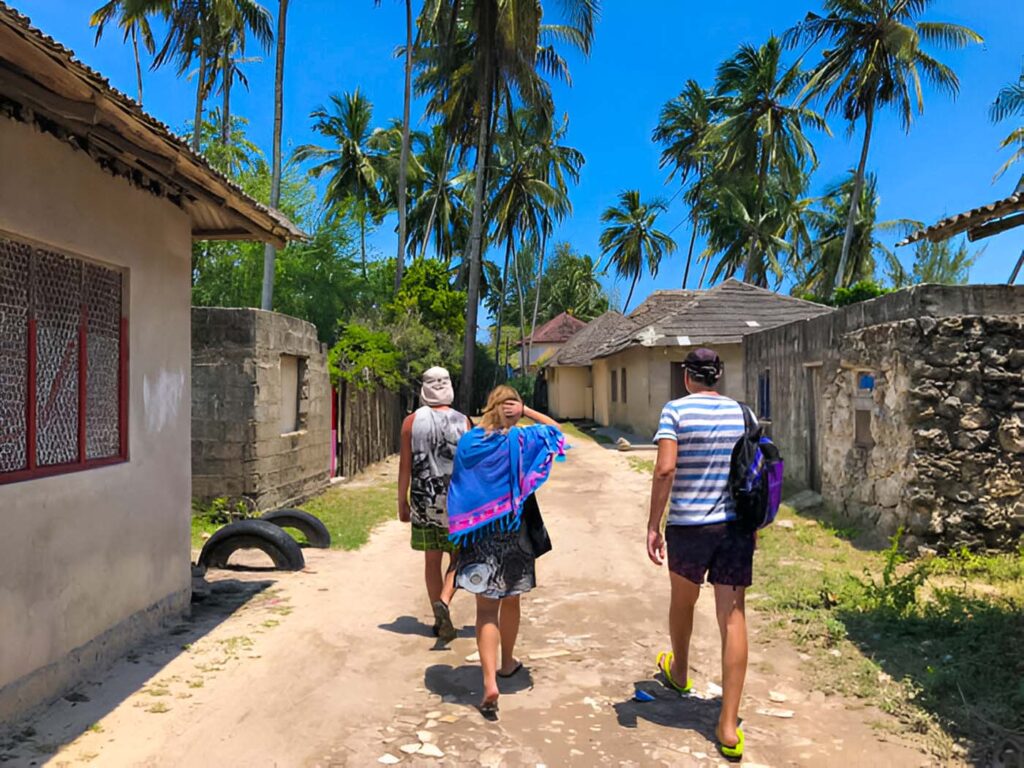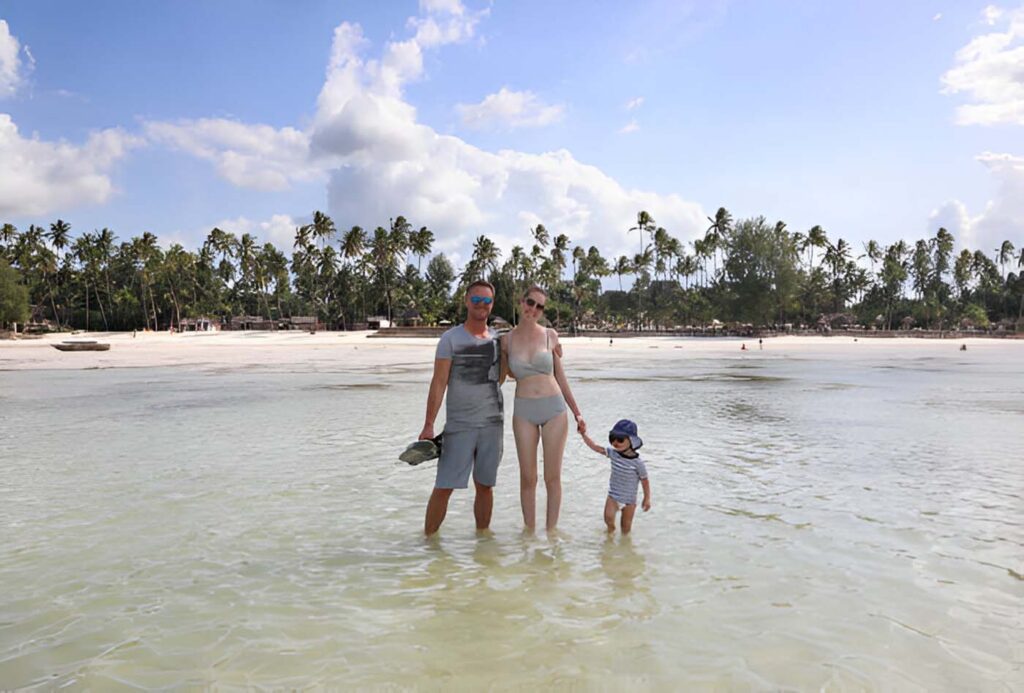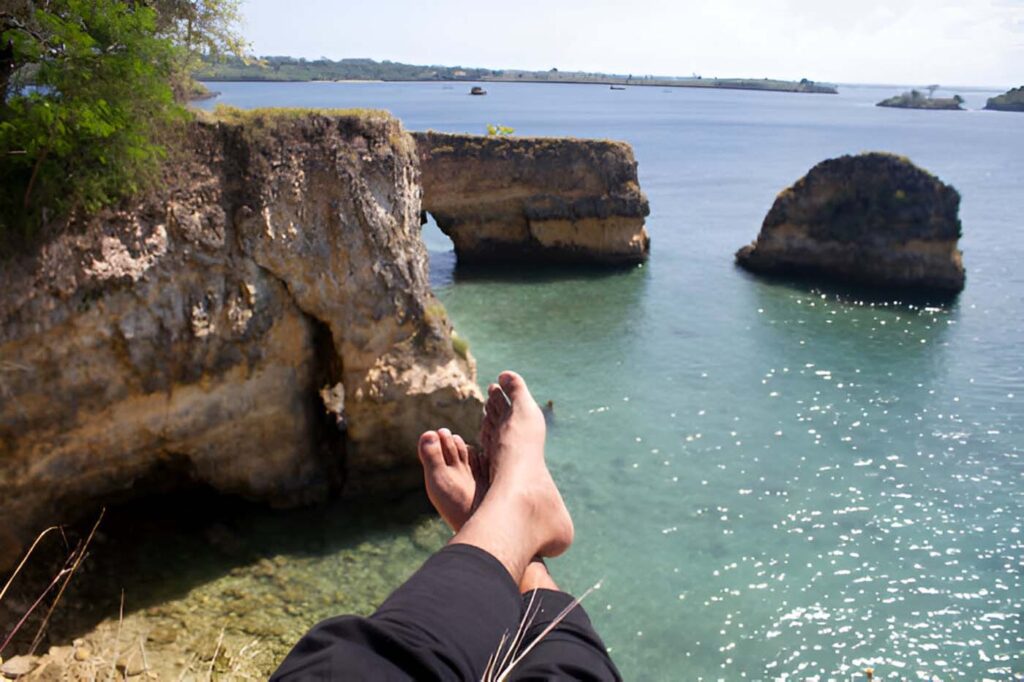Quick Answer
Relocating to Kilifi offers 15-50% housing cost savings versus Nairobi, year-round 22-32°C climate, reliable fiber internet for remote work, and pristine Indian Ocean access. Singles need KES 60,000+ monthly, families KES 120,000+, with diverse eco-friendly housing and strong expat community support.
Key Takeaways for Smart Packing
- Housing costs 15-50% less than Nairobi with 3-bedroom homes from KES 15 million
- High-speed fiber internet (10-100 Mbps) supports digital nomads and remote workers
- Year-round comfortable temperatures with June-September being ideal months
- Growing international community offers networking and social integration opportunities
- Improved infrastructure includes modern healthcare facilities and educational options
Visa Requirements and Entry Process
Current Entry Requirements (Updated August 2025):
- Kenya implemented the Electronic Travel Authorization (ETA) system in January 2024, replacing the previous eVisa system. All travelers must obtain ETA approval at least 72 hours before travel through the official portal www.etakenya.go.ke
- Standard processing takes 3-5 business days with government fees around $30 USD. Expedited processing available for additional charges
- The ETA allows stays up to 90 days and is valid for 5 years from approval date for multiple entries
- East African Community citizens (Kenya, Uganda, Tanzania, Rwanda, Burundi, South Sudan) are exempt from ETA requirements
Why Digital Nomads and Families Choose Kilifi Over Other Coastal Destinations
The transformation of this coastal hub over fifteen years represents one of East Africa’s most successful regional development stories. Unlike overcrowded destinations like Phuket, expensive areas like the French Riviera, or visa-restrictive locations like many Caribbean islands, Kilifi strikes the perfect balance between accessibility, affordability, and authentic cultural experience.

International relocators discover that Kilifi offers what many global coastal destinations have lost: genuine community, environmental consciousness, and the opportunity to live well without overwhelming expenses. The combination of Kenya’s welcoming visa policies, English-language environment, and stable governance creates an ideal foundation for global citizens seeking their next home base.
Kenya’s broader appeal as a destination continues growing internationally, with the government’s active promotion of tourism and relocation opportunities. For those considering Kenya as their next adventure, Kilifi represents the perfect entry point into East African coastal living.
The KES 15 billion highway dualling project connecting Mombasa to Malindi has fundamentally altered regional connectivity. This East African Coastal Corridor development means Kilifi residents enjoy easy access to Mombasa’s international airport (60km) while maintaining small-town charm that larger coastal cities have lost.
Kenya’s national fiber optic project revolutionized digital infrastructure here. Multiple providers including Safaricom Home Fibre, Zuku Internet, JTL Faiba, and local companies like iNet Africa now offer 10-100 Mbps speeds. This connectivity transformation makes Kilifi particularly attractive for location-independent professionals seeking affordable coastal living without sacrificing career opportunities.
Healthcare infrastructure experienced unprecedented growth with Kilifi County’s medical complex completion and 64-slice CT scanner installations. Educational facilities evolved similarly, with Pwani University’s expansion creating regional education opportunities that attract families prioritizing children’s academic development.
Kilifi vs Other Coastal Destinations:
- Diani: More expensive, crowded beaches, limited authentic culture
- Watamu: Higher property costs, fewer community amenities
- Malindi: Larger crowds, more commercialized, less intimate community
- Kilifi: Best value, growing infrastructure, authentic cultural blend
The Real Cost Breakdown: Budget Planning for Different Lifestyles
Solo Digital Nomads and Remote Workers
Monthly budgets for single professionals range KES 60,000-80,000, covering comfortable coastal living without luxury expectations. This includes modest rental accommodation (KES 25,000-35,000), regular local dining, transportation, and entertainment while maintaining good work-life balance.

Solo Traveler Monthly Costs:
- Housing: KES 25,000-35,000 (studio/1-bedroom)
- Food: KES 12,000-18,000 (mix of home cooking/dining out)
- Internet: KES 3,000-5,000 (high-speed fiber)
- Transportation: KES 3,000-5,000 (bodaboda/tuk-tuk)
- Utilities: KES 4,000-8,000 (electricity/water)
- Entertainment: KES 8,000-12,000 (social activities)
Budget Travelers on Extended Stays
Those seeking minimal-cost coastal living can survive on KES 40,000-50,000 monthly by choosing basic accommodations, cooking most meals, using public transport, and engaging in free community activities. This budget requires careful planning but enables extended coastal experiences.
Families with School-Age Children
Family relocations typically require KES 120,000-160,000 monthly budgets, factoring larger housing needs, school fees, and family activities. International schooling significantly increases costs, while local schools offer more affordable quality education options.
Family Monthly Costs:
- Housing: KES 50,000-80,000 (3-4 bedroom)
- School fees: KES 15,000-40,000 per child (local private schools)
- Food: KES 20,000-30,000 (family of four)
- Transportation: KES 8,000-12,000 (family vehicle/multiple trips)
- Healthcare: KES 5,000-10,000 (insurance/medical costs)
- Activities: KES 15,000-25,000 (family entertainment)
Luxury Coastal Living
High-end relocators spending KES 200,000+ monthly enjoy beachfront properties, international schooling, regular Mombasa/Nairobi trips, domestic help, and premium amenities. This lifestyle provides maximum comfort while supporting local employment.
Housing Market Navigation: From Rentals to Land Ownership
Understanding the Rental Market
Rental properties range from basic local housing (KES 15,000-25,000) to luxury beachfront villas (KES 100,000+). Most come unfurnished, requiring furniture and appliance investments. Typical agreements demand 1-3 months deposit plus first month’s rent advance.
Rental Categories:
- Basic Local: KES 15,000-25,000 (simple amenities, local neighborhoods)
- Mid-Range Expat: KES 35,000-60,000 (modern amenities, mixed communities)
- Luxury Coastal: KES 80,000-150,000 (beachfront, premium facilities)
- Eco-Friendly Options: KES 40,000-80,000 (solar, rainwater harvesting)
Property conditions vary significantly, making personal inspection essential. Clarify internet reliability, water pressure, and electrical consistency before committing. Written lease agreements protect both parties by outlining maintenance responsibilities and termination terms.

Land Ownership for Kenyan Citizens vs Foreigners
Kenyan citizens acquire freehold titles, while foreigners use 99-year leasehold arrangements. Current land prices show dramatic appreciation – 1/8 acre developed plots start KES 3.5 million, while prime beachfront acres reach KES 70 million depending on location and amenities.
Land Purchase Process:
- Property Identification: Work with licensed agents familiar with coastal regulations
- Due Diligence: Engage qualified surveyors and advocates for verification
- Title Verification: Ministry of Lands confirms ownership and encumbrances
- Legal Completion: Advocate handles documentation and registration
- Transfer Finalization: Official title transfer and tax compliance
Sustainable Building Trends for First-Time Coastal Builders
Eco-friendly construction attracts environmentally conscious relocators. Popular methods include compressed stabilized earth blocks, makuti (palm thatch) roofing, and earthbag construction using local materials with excellent insulation properties.
Off-grid systems prove cost-effective long-term: solar power with battery backup, rainwater harvesting, composting toilets, and greywater recycling. Initial investments range KES 800,000-2,000,000 but provide utility independence and reduced environmental impact.
Essential Services and Infrastructure During Rainy Season vs Dry Season
Healthcare Facilities and Emergency Services
Local Healthcare Options:
- Aga Khan Clinic – Kilifi: High-quality private care, general practitioners, lab diagnostics, outpatient services; preferred by many expats for reliable standards
- Mephi Medical Clinic – Kilifi: Private outpatient clinic with better facilities than public hospitals; ideal for routine care, checkups, and minor emergencies
- Kilifi County Hospital: Public facility offering basic care and emergency services; limited specialists and long queues; mainly used in emergencies or for referrals
- Coast General Teaching & Referral Hospital – Mombasa: Closest full-scale tertiary hospital (1.5 hours from Kilifi); wide range of specialists, surgeries, and critical care
- Premier Hospital – Nyali (Mombasa): Private hospital offering premium services, specialists, emergency care, and advanced diagnostics; preferred by many expats living along the coast
- Mombasa Hospital – Mombasa: Long-standing private hospital with a solid reputation for general and specialist care; about 1.5 hours’ drive from Kilifi
- AAR Clinic – Mombasa: Private outpatient clinic network known for serving expats and corporate clients; offers insurance support and fast service

For specialized treatment, residents travel to Mombasa’s advanced hospitals. Emergency transport averages 1-2 hours depending on traffic and weather conditions. Many expats maintain comprehensive medical insurance covering Nairobi/Mombasa treatment options.
Emergency Contacts:
- Kilifi County Hospital: +254 41 522 2063
- Police Emergency: 999 or 112
- Red Cross Ambulance: +254 703 037 000
- Mombasa Referral Hospital: +254 41 231 2191
Educational Opportunities Throughout the Year
School Fee Ranges (2025 Academic Year):
International Schools:
- Kilifi International School (KIS): KES 250,000 – 700,000 annually (Playgroup to A-Level); one-time registration fee applicable
- Kivukoni International School: KES 300,000 – 750,000 annually (Year 1 to Year 11, British Curriculum); includes boarding and day options
- Mudzini School: KES 120,000 – 400,000 per term depending on grade level (IGCSE and Kenyan curricula); boarding available
- Sandpiper International School (Malindi): KES 180,000–600,000 annually (Early Years to A-Level); mixed curriculum with holistic focus
Private Local Schools:
- Premium Private: KES 100,000-300,000 annually (quality facilities, smaller classes)
- Standard Private: KES 40,000-100,000 annually (enhanced over public schools)
- Kilifi New Life Academy: Christian-based education, competitive local rates
Public Schools:
- Government Schools: KES 5,000-15,000 annually (Kenyan curriculum)
- Limited fees but basic facilities and larger class sizes
Additional Costs:
- Transport fees vary by distance (family discounts often available)
- Uniform and textbook costs typically not included in fees
- International schools may charge extra for trips, activities, and examination fees
Seasonal Internet and Connectivity Considerations
High-speed internet infrastructure supports year-round remote work. Multiple providers ensure backup options during maintenance or weather disruptions:
Internet Providers and Speeds:
- Safaricom Home Fibre: 10-100 Mbps, KES 2,500-8,000 monthly
- Zuku Internet: 20-50 Mbps, KES 3,000-6,000 monthly
- JTL Faiba: 10-30 Mbps, KES 2,000-4,000 monthly
- Local Providers: iNet Africa, Tandaa Networks, competitive rates
Co-working spaces like Distant Relatives Ecolodge offer dedicated work areas and professional networking. Many remote workers create home offices or join informal co-working arrangements leveraging reliable connectivity and inspiring coastal environments.
Community Integration and Social Life for Solo Female Travelers and Expat Families
Finding Your Tribe in Kilifi’s International Community
Social connections develop organically through shared interests and community activities. Online platforms provide initial networking, while face-to-face activities build lasting relationships.

Digital Community Platforms:
- Facebook Groups: “Kilifi Expats,” “Kilifi Community” (practical information)
- WhatsApp Groups: Activity-specific organizations (beach volleyball, book clubs)
- TikTok Discovery: #KilifiLife, #CoastalKenya (hidden gems, events)
- Instagram: Local content creators showcase restaurants, events, secret spots
Regular Social Activities:
- Weekly beach walks and fitness groups
- Monthly potluck dinners and cultural exchanges
- Skill-sharing workshops (language, crafts, business)
- Art exhibitions and music sessions
- Environmental projects and beach cleanups
Cultural Integration Tips for Western Relocators
Successful integration requires cultural sensitivity and patience. Learning basic Kiswahili facilitates daily interactions and demonstrates respect for local Giriama and Swahili cultures.
Cultural Adaptation Guidelines:
- Greetings: Always acknowledge people with “Jambo” or “Hujambo”
- Dress Codes: Modest clothing in town, especially covering shoulders/knees
- Social Hierarchy: Respect for elders and community leaders
- Religious Sensitivity: Understanding Islamic customs during Ramadan
- Business Practices: “Coast time” flexibility vs punctuality expectations
The indigenous Mijikenda peoples, particularly the Giriama, maintain strong connections to traditional practices including sacred forests (kayas) and ancestral customs. Swahili culture contributes Islamic architectural elements and beautiful Kiswahili language, creating welcoming environments where tradition and modernity coexist.
Sustainable Living Projects for Environmentally Conscious Relocators
Kilifi’s environmental movement attracts residents interested in conservation and community resilience. Multiple permaculture farms offer workshops teaching sustainable agriculture suited to coastal conditions.
Environmental Initiatives:
- Tree Planting: Indigenous species restoration, food forest development
- Water Conservation: Rainwater harvesting, greywater recycling systems
- Solar Cooperatives: Shared installation costs, maintenance knowledge
- Organic Farming: Community gardens, sustainable agriculture training
- Marine Conservation: Coral reef protection, sustainable fishing practices

Practical Relocation Timeline and Moving Logistics
6 Months Before: Research and Planning Phase
Initial Research Tasks:
- Conduct reconnaissance visits during different seasons
- Research visa requirements and legal documentation
- Investigate housing markets and neighborhood characteristics
- Establish online community connections
- Research school options and enrollment requirements
Financial Preparation:
- Open Kenyan bank accounts and obtain KRA PIN
- Research currency exchange and money transfer options
- Calculate moving costs including shipping and temporary accommodation
- Investigate health insurance options covering local and referral hospitals
3 Months Before: Finalizing Arrangements
Housing Finalization:
- Complete rental agreements or property purchase procedures
- Arrange utility connections and internet installation
- Organize furniture shipping or local purchasing plans
- Confirm school enrollment and required documentation
Legal Documentation:
- Engage qualified advocates for property transactions
- Verify all required permits and clearances
- Prepare essential documents (passport, ID, bank statements)
- Understand tax obligations and compliance requirements
1 Month Before: Final Preparations
Logistical Completion:
- Arrange shipping for belongings and personal items
- Notify current service providers of relocation
- Organize temporary accommodation upon arrival
- Establish emergency contacts and local support networks
Document Preparation:
- Ensure all legal paperwork is properly prepared
- Organize medical records and prescription transfers
- Prepare children’s school records and transcripts
- Compile emergency contact information
Moving with Children and Pets
Child Relocation Considerations:
- Visit schools before moving to help adjustment
- Maintain familiar routines during transition
- Research pediatric healthcare options
- Connect with other expat families for social integration
Pet Import Requirements:
- Veterinary health certificates and vaccinations
- Import permits from Kenya Veterinary Department
- Quarantine arrangements if required
- Local veterinary service establishment

Seasonal Living: Best Times to Visit vs Relocate
Climate Patterns and Optimal Timing
Kilifi enjoys consistent 22-32°C temperatures year-round, but seasonal variations affect comfort and activities:
Seasonal Breakdown:
- June-September: Coolest, most comfortable period (ideal for initial visits)
- October-November: Short rains, occasional intense bursts
- December-March: Dry season, warmest temperatures
- April-May: Long rains, heaviest precipitation periods
Best Relocation Timing:
- Optimal: June-August (comfortable weather, clear skies)
- Good: September-November (post-rain freshness, moderate temperatures)
- Challenging: April-May (heavy rains, potential transport delays)
- Hot but Manageable: December-March (dry, warmer conditions)
Activity Costs and Seasonal Availability
Water Sports and Marine Activities:
- Snorkeling/Diving: KES 3,000-8,000 per trip (year-round availability)
- Deep Sea Fishing: KES 15,000-25,000 per boat (best October-March)
- Kitesurfing Lessons: KES 5,000-8,000 per session (consistent winds)
- Beach Activities: Free access to public beaches (Bofa Beach, Kilifi Creek)
Cultural and Entertainment Costs:
- Local Restaurant Meals: KES 500-1,500 per person
- Beach Bar Drinks: KES 300-800 per drink
- Cultural Events: Often free or KES 200-1,000 entry
- Music Venues: KES 500-2,000 cover charges
Currency, Banking, and Financial Practicalities
Currency and Exchange Considerations (August 2025)
Current Exchange Rates:
- USD to KES: Approximately 129.20 (fluctuating between 127.96-130.71 in 2025)
- Exchange rates are market-determined by Central Bank of Kenya based on supply and demand
- Banks offer official rates with service fees; forex bureaus may provide competitive rates for smaller amounts
- Large transactions typically get better rates at commercial banks
Payment Methods:
- Mobile Money: M-Pesa universally accepted, essential for daily transactions
- Cash: Still preferred by small vendors and markets
- Debit Cards: Widely accepted by larger businesses
- Credit Cards: Limited acceptance, mainly upscale establishments
- Bank Transfers: Available for larger transactions and rent payments
Banking Setup Requirements (2025 Updated)
Documentation for Foreign Account Opening:
- Valid passport with current visa or work permit
- Proof of local Kenyan address (utility bill, rental agreement)
- KRA PIN certificate (obtainable from Kenya Revenue Authority)
- Reference letter from employer or credible institution
- Two passport-sized photographs
- Minimum deposit requirements (typically KES 500-5,000)
Major Banks Accepting Foreign Clients:
- KCB Bank: Offers Diaspora Current Account for foreign currency transactions
- Equity Bank: Comprehensive services, extensive ATM network
- Standard Chartered: International banking services, mobile app account opening
- Absa (formerly Barclays): Multi-currency accounts available
Mobile Money Integration:
- M-Pesa: Universal payment system accepted by most businesses
- Account linking allows seamless transfer between bank accounts and mobile money
- Essential for daily transactions as many vendors prefer mobile payments
Property Taxes and Legal Costs (2025 Rates)
Stamp Duty (Property Transfer Tax):
- Municipal/Urban Areas (Leaseholds): 4% of property valuation
- Rural Areas (Freeholds): 2% of property valuation
- Paid by buyer during property transfer process
- Calculated on government valuation, not purchase price
Capital Gains Tax:
- Rate: 15% on net gains (increased from 5% in 2023)
- Paid by seller on property appreciation above acquisition costs
- Exemptions include: primary residence (occupied 3+ years), agricultural land under 50 acres, transfers under KES 3 million
- Payment due within 20 days of property transfer
Annual Property Costs:
- Land Rates: Annual payments to county governments (KES 1,000-50,000+ depending on size/location)
- Land Rent: For leasehold properties only, paid to Ministry of Lands (varies by property)
- Property Management: If using agents (typically 5-10% of rental income)
Transaction Costs:
- Legal Fees: Advocate fees for conveyancing (varies by property value)
- Land Search: KES 2,000 (increased from KES 500 under proposed amendments)
- Survey Costs: Topological surveys approximately KES 30,000 (doubled under proposed changes)
- Registration Fees: Various government processing charges

Q: Is Kilifi safe for solo female travelers and expat families? A: Kilifi maintains good security levels with active community watch programs. Solo female travelers report feeling safe, especially within established expat areas. Families find the environment very child-friendly with strong community support networks.
Q: How reliable is internet for remote work during rainy seasons? A: Multiple fiber providers ensure backup options during weather disruptions. Most remote workers maintain backup connections through mobile data. Outages are typically brief and providers offer good customer service for quick resolution.
Q: What are the biggest challenges for first-time coastal relocators? A: Adjusting to “coast time” pace, occasional power outages, and seasonal water supply variations. Most challenges are manageable with proper preparation and local community support.
Q: Can foreigners own property directly in Kilifi? A: Foreigners can acquire 99-year leasehold titles but not freehold ownership. Many use Kenyan companies or trust arrangements for property investment, requiring qualified legal advice.
Q: How much does international shipping to Kenya cost? A: Container shipping from Europe/North America ranges $2,000-6,000 plus customs duties. Air freight costs $5-10 per kg but arrives within 1-2 weeks. Many international relocators ship essentials by air and furniture by sea container.
Q: What’s the easiest route for international flights to Kilifi? A: Fly into Jomo Kenyatta International Airport (Nairobi) with major airlines, then domestic flight to Malindi (45 minutes) or drive to Kilifi (6-7 hours). Alternatively, fly to Moi International Airport (Mombasa) and drive north (1.5 hours).
Q: Can I bring my car from overseas to Kenya? A: Yes, but consider age restrictions and import duties (25-35% of value). Many expats find purchasing locally more cost-effective. Left-hand drive vehicles from the US/Europe require conversion or special permits.
Q: How do international money transfers work for Kenya? A: Use services like Wise, Remitly, or WorldRemit for better rates than traditional banks. Most support direct transfers to Kenyan banks or mobile money (M-Pesa). Expect rates around 129 KES per USD with 1-3 day processing.
Q: What happens during medical emergencies requiring specialized care? A: Emergency transport to Mombasa’s advanced hospitals is available but takes 1-2 hours. Many residents maintain comprehensive insurance covering referral hospital treatment and emergency evacuation services.
Ready to start your international coastal journey? Kilifi represents one of the world’s most promising lifestyle and investment opportunities for global relocators seeking authentic community, natural beauty, and exceptional value. The combination of dramatic cost savings, tropical living, and genuine cultural exchange makes this destination increasingly attractive to forward-thinking individuals and families worldwide.



